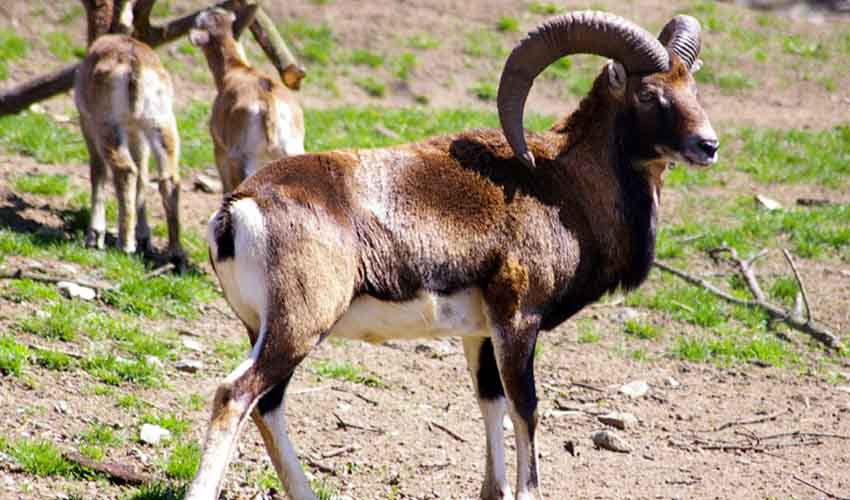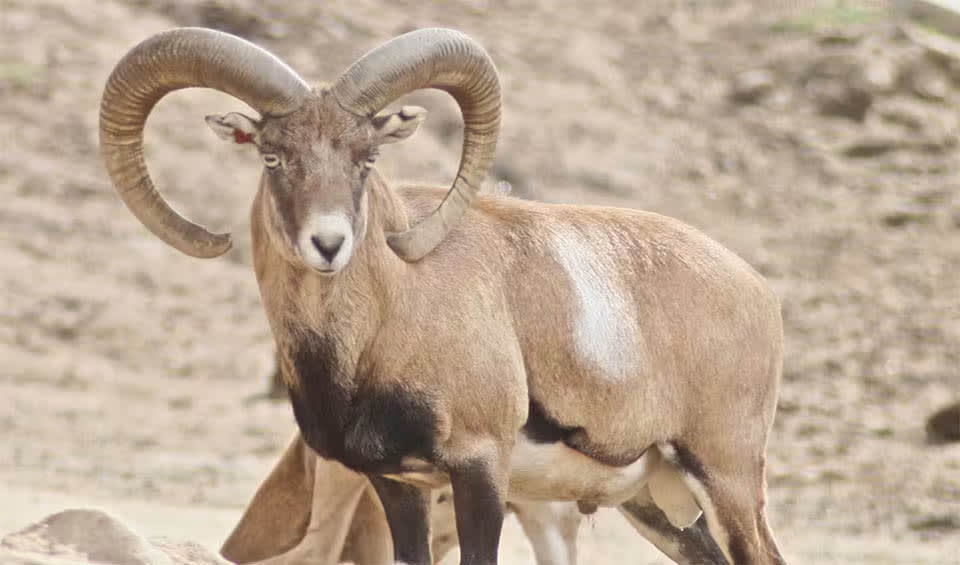Ovis – Sheep
Highly sociable caprines species known as sheep, including domestic sheep
Sheep are special in ungulates due to their adaptability, social structures, and profound significance to human economies. While sheep are generally smaller in stature compared to other ungulates, with adult weights typically not exceeding 100 kg (220 pounds), their ability to thrive in various environments is remarkable.
Sheep are predominantly found in rugged terrains such as hilly or mountainous areas, offering protection from predators through natural barriers and access to their preferred diet of grasses, plants, and lichens. Their dietary habits are supported by their specialized four-chambered stomachs, which enable efficient breakdown and digestion of plant materials. This digestive capability allows them to extract maximum nutrition from the often sparse vegetation in their natural habitats.
A notable adaptation of sheep is their exceptional ability to conserve water, enabling them to survive in arid and semi-arid environments where water sources are scarce. This trait is particularly beneficial for species dwelling in environments that experience seasonal or prolonged dry periods.
Socially, sheep exhibit strong group cohesion, living in flocks that provide mutual benefits regarding predator avoidance and survival in harsh weather conditions. The social structure within a flock can be complex, with hierarchies and roles that contribute to the group’s overall well-being. Living in groups also facilitates the efficient location of food and water sources and provides a thermal advantage through huddling together during cold weather, thereby conserving heat.
From an economic standpoint, sheep are among the most valuable species to humans. They have been domesticated for thousands of years, providing a wealth of resources, including meat, milk, and wool. Additionally, sheep are utilized in agriculture for their grazing abilities, which can help control weed growth and maintain healthy pastures. The domestication and breeding of sheep have led to a significant increase in their populations globally, with numerous breeds developed to enhance specific traits such as wool quality, meat yield, and hardiness.
Species in this genus
Argali
Known as the “Marco Polo sheep,” it was first described by the explorer during his Central Asia travels
Mouflon
Considered as one of the ancestors of all modern domestic sheep
Bighorn sheep
The iconic species of the North American mountains
Dall sheep
Their horns come in handy during mating season and as a line of defense against wolves and bears
Domestic sheep
Social animals, typically of the same gender: males herds are called “bachelor” herds






